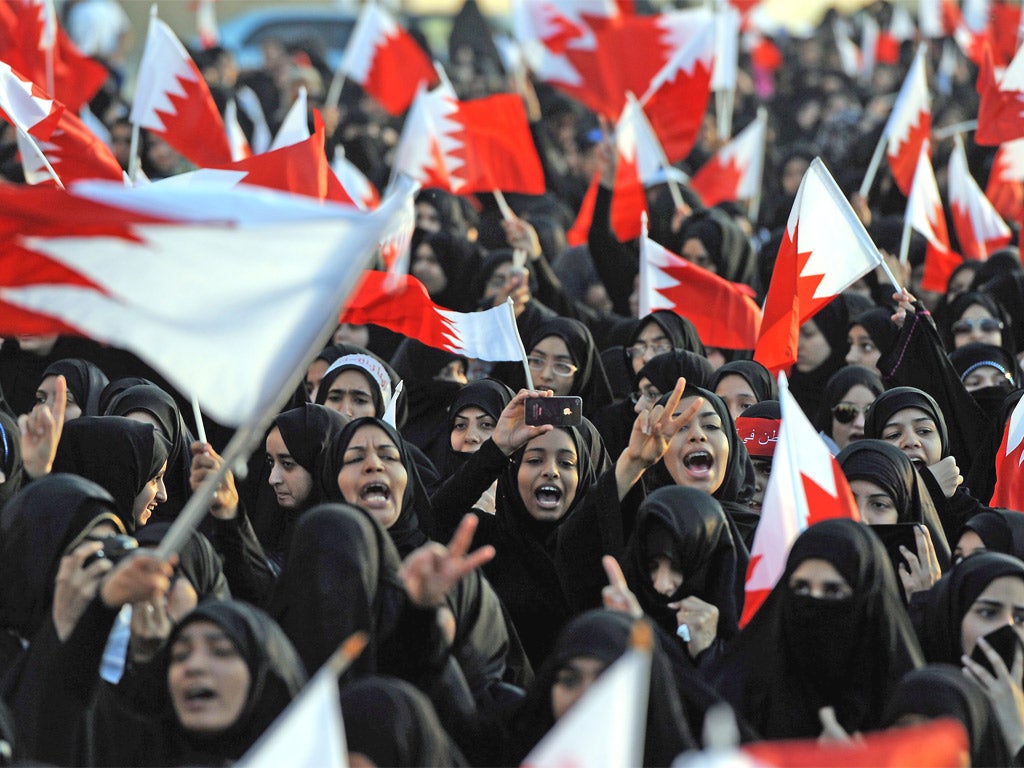The Independent's journalism is supported by our readers. When you purchase through links on our site, we may earn commission.
Fact File: Bahrain

Among the nations of the Arab Spring, Bahrain is an unusual case.
The base of the US Navy’s 5th Fleet and the only Gulf state to be caught up in the pro-democracy uprisings, the fate of this tiny island is of keen interest to the rest of the world - and still hangs in the balance.
While uprisings in Tunisa, Egypt and Libya have ousted autocratic regimes, the Bahraini authorities have retained power since the February 2011 ‘Day of Rage’ with a mixture of concessions to reform and force. In the latter, they are aided by their powerful neighbour Saudi Arabia, another Sunni-ruled state, with reason to fear the growing confidence of a Shiite majority.
Amnesty International have questioned the government’s commitment to democratic reform, pointing to the plight of hunger-striking activist Abdulhadi al-Khawaja and poet Ayat al-Gormezi, but the ruling Al Khalifa family enjoy the continued support of foreign governments.
Britain has demonstrated particular loyalty to its former protectorate. The 2012 Formula One Grand Prix (held in Bahrain since 2004) went ahead despite a backdrop of protest, the British government continues to sanction arms exports to the area and the King of Bahrain apparently remains on the Queen’s invite list. He has RSVP-ed to attend the Diamond Jubilee lunch at Windsor Castle.
The Numbers
256 sq miles – Area of the island kingdom of Bahrain - or about the size of South London. Source: Foreign & Commonwealth Office
1783 – The year the Khalifah family, members of the Bani Utbah tribe defeated Nasr Al-Madhkur to become rulers of Bahrain. Source: Foreign & Commonwealth Office
1971 – The year H.R.H. Prince Khalifa bin Salman bin Hamad Al Khalifa, the current king’s uncle, was appointed prime minister. Source: Kingdom of Bahrain, Ministry of Foreign Affairs
35 – Estimated number of deaths during the February-March 2011 protests, including five security officers. Source: Amnesty International
4000 – Estimated number of protestors dismissed from their jobs for taking part in anti-government protests. Source: Amnesty International
Further Reading
Human Rights in Bahrain, Amnesty International, 2012
Bahrain – an uprising on the verge of revolution, Robert Fisk, The Independent, 2012
Britain’s craven silence over Bahrain stinks of hypocrisy, Emmanuel Stoakes, The Independent, 2012
Witness to an Uprising: Expelled from Bahrain for posting to Facebook, Tony Mitchell, the Atlantic, 2012
Ali Hasan: The 11 year-old feeling the wrath of Bahrain's regime, Patrick Cockburn, The Independent, 2012
Timeline
650AD – the Arabian Peninsuala including Bahrain comes under the rule of the followers of the prophet Mohammed
1783 – The Al-Khalifa family take Bahrain from Persia
1820 – Bahrain becomes a British protectorate
1932 – Bahrain becomes the first Gulf country to discover petroleum
1971 – Bahrain announces its independence from the UK
1996 – A spate of anti-government protests culminate in the bombing of hotels and restaurants. Over a thousand people are detained without trial.
2011 – A February Day of Rage sparks off anti-government protests
July 2012 - Bahrain's Interior Minister is entertained at the Foreign Office on the same day as 20 countries issue a UN statement expressing concern about human rights in Bahrain.
Join our commenting forum
Join thought-provoking conversations, follow other Independent readers and see their replies
Comments
Bookmark popover
Removed from bookmarks